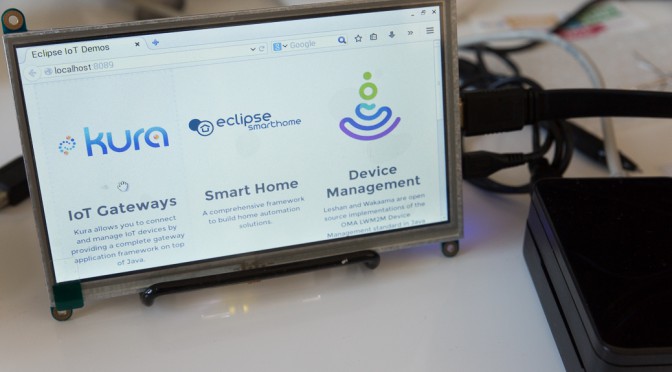I was just asked how one can deploy a similar setup as the iot.eclipse.org MQTT sandbox, where MQTT over WebSockets is available on port 80, just like the rest of the website.
There are actually two ways of achieving this.
Mosquitto as the main frontend
It’s a little-known fact but together with built-in WebSockets support (added in version 1.4), Mosquitto also can act as basic HTTP server, and directly serve a bunch of static resources for you. The config option you’re looking for is “http_dir“, that will allow you to serve the content of a directory over HTTP.
Granted you are running a version of Mosquitto that has WebSockets support, here how your mosquitto.conf file should look like to enable WebSockets *and* regular HTTP connections:
listener 80 protocol websockets http_dir /home/johndoe/htdocs
Of course, you will need to make sure that you do not have any other daemons (like Apache, nginx, …) already running and using port 80 🙂
Once Mosquitto is setup this way, you can use any MQTT client that supports WebSockets to connect to ws://yourhost URI.
[info]ws://yourhost/ws, or ws://yourhost:80/foobar would work just fine too – Mosquitto doesn’t care about the path at all![/info]
Apache front-end + mod_websocket_mosquitto
Since it’s likely you actually want a “real” HTTP server to serve your website (for security reasons, for being able to run PHP, etc.), another approach is to use Apache as the main HTTP front-end, as you would normally do, and configure it to tunnel WebSockets connections made on a given URI to your Mosquitto broker.
You can download an Apache module that does exactly that at https://github.com/willem4ever/mod_websocket_mosquitto. The instructions to compile and install it are pretty straightforward and you will end up with something like the following in your Apache configuration:
<IfModule mod_websocket.c> Loadmodule mod_websocket_mosquitto /usr/lib/apache2/modules/mod_websocket_mosquitto.so <Location /mosquitto> MosBroker localhost MosPort 1883 SetHandler websocket-handler WebSocketHandler /usr/lib/apache2/modules/mod_websocket_mosquitto.so mosquitto_init </Location> </IfModule>
